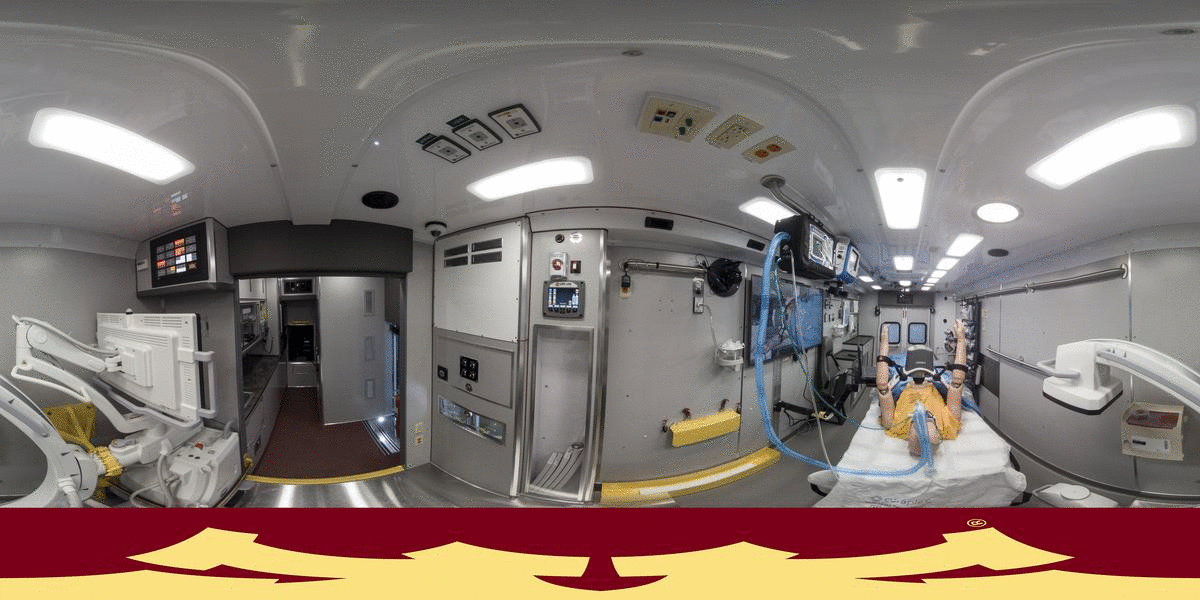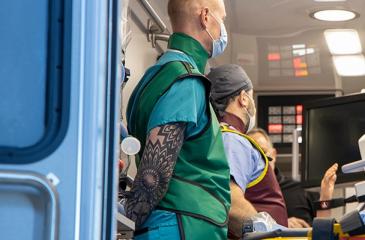University of Minnesota, The Leona M. and Harry B. Helmsley Charitable Trust and health care system partners announce the launch of a truck outfitted with medical equipment and virtual reality technology to help experts attend to patients remotely for extracorporeal membrane oxygenation (ECMO). Part of the Minnesota Mobile Resuscitation Consortium (MMRC), the truck brings the emergency room to cardiac arrest patients and is an innovative step in providing care to cardiac arrest patients who need to be placed on ECMO.
“This approach will allow experts to administer treatment on-site in the vehicle — shortening the time to treatment and broadening the area served by MMRC,” said Jason Bartos, president of the Minnesota Mobile Resuscitation Consortium and assistant professor in the Medical School. “Every 10-minute delay in treatment for these patients increases the chances of mortality by 15 to 25%. This technology and community partnership aims to save the lives of cardiac arrest patients in scenarios which traditional resuscitation efforts have failed.”
Equipped with state-of-the-art medical equipment, the MMRC truck allows not only for emergency responders to treat patients on-site, but cardiology physicians can also be brought in to assist via virtual reality while a patient is being cared for while en route to a hospital. This technology is a progressive step in decreasing deaths from cardiac arrest.

“Our goal has been to improve cardiac arrest survival, and the early results from the MMRC's efforts show more people are alive today because of the hard work of all involved,” said Walter Panzirer, a trustee of the Helmsley Charitable Trust, which helped launch the program with an $18.6 million grant. "We’re hopeful the addition of this truck will help the teams expand their footprint and reach more people quickly.”
Under the leadership of Demetri Yannopoulos, director of the Center of Resuscitation Medicine and a professor in the Medical School, this Minnesota-based program began in December 2019 by launching three SUVs that brought proper medical equipment to Twin Cities area emergency departments managed by the program’s health care system partners: Fairview Health Services, Regions Hospital (HealthPartners) and North Memorial Health Care System. To date, the MMRC mobile team has treated 58 patients — 43% were discharged from the hospital with either a return to normal daily living or with minimal disruption to their daily life.
This story was originally published on February 3, 2021 by the University of Minnesota.



